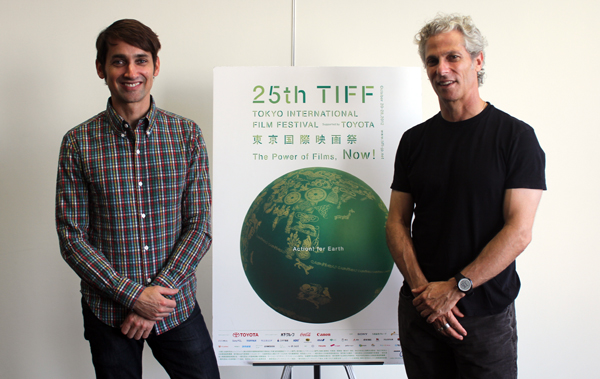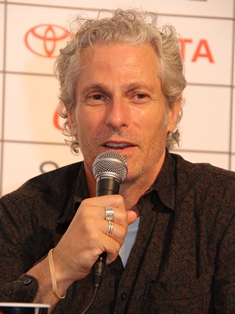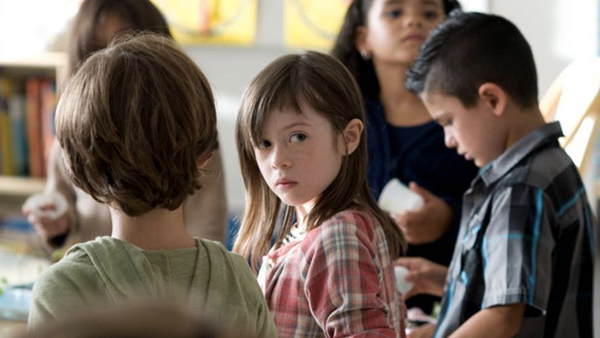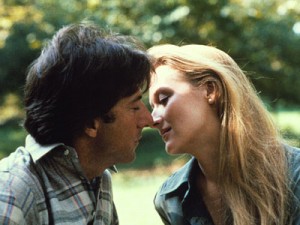Director partners Scott McGehee and David Siegel met with Christopher O’Keeffe at the Tokyo International Film Festival to talk school in Japan, sharing vulnerabilities, James Bond, Steve Coogan, divorce, and their latest film, What Maisie Knew. Just don’t mention the ‘K’ word.
It was during last week’s Tokyo International Film Festival (TIFF) I was lucky enough to sit down with David Siegel and Scott McGehee, directors of the film What Maisie Knew, which appeared in the Competition section of the festival. See the bottom of the page to watch the film’s trailer.
The film tells the story of a young girl who is shuffled between parents and carers after a bitter divorce and stars a fine cast which includes Julianne Moore and Steve Coogan. Seigel and McGhee have been working together since their feature debut, Suture, in 1993. Here is a transcript, edited a little for length and clarity, of our Q&A session.
Weekender: Are you enjoying the festival so far?
David Siegel: We haven’t seen many films actually.
Scott McGehee: Like zero, thats mostly my fault because I took a break to go visit my friends in Shiga.
Siegel: I had some work to do and I got hanging out with some filmmakers.
Weekender: Japanese filmmakers?
Siegel: No we haven’t met many Japanese filmmakers, its a shame, we wanted to catch some Japanese films, but we were too busy unfortunately.
Weekender: Have you been to Japan before?
Siegel: A couple of times, we brought our first film here, Suture, back in 1994 with the ‘Sundance in Tokyo’ program, which I think they only did for three or four years.
McGehee: That was a nice program, they would bring five or six films and the filmmakers over and have a kind of mini festival of Sundance films for a Tokyo audience. We came over here with David O’Russel and Kevin Smith, that was a fun group but we haven’t been back since…
Siegel: Well, I have, I came for my brothers wedding, he married a Japanese woman.
Weekender: Scott, we met the other night but could you tell me again how you came to Japan before?
McGehee: I came for the first time as an exchange student in high school on the AFS program, I didn’t choose Japan, I just chose to go abroad and they decided where to send me and I went to live with a family near Otsu City for a school year.
Weekender: Did you like it?
McGehee: (laughs) That would be a simple way to describe it, it was quite the experience for me, I was very young, like 17, I got really homesick sometimes. It’s a really long time for a 17 year old suburban kid to spend away from his family, and I went to a really competitive high school where they didn’t socialize and studied for long hours so it was hard to make friends which was really different from a California public school, so it took me a little while to adjust. Some of the friends I made live in Tokyo now and they will be coming to the screening this afternoon so I will see some people I haven’t seen for 30 years!
Weekender: Do they know you’re a filmmaker now? Have you had messages from them in the past?
McGehee: No, it was before e-mail that I met them so staying in touch was a more complicated thing. I haven’t communicated with them…
Siegel: You must have now because they’re here!
Weekender: Ok, on to the film, the story felt very contemporary to me, like it could only have been made within the last few years, but I heard it was based on an old Henry James novel from over 100 years ago. After reading the script did you read the book, and did that have any influence on you?
Siegel: No, I don’t think it had much influence on us, other than to impress us with how sturdy the conceit is, a child being split form two parents is an emotionally difficult thing. We read that James wrote the script based on a story he heard at a dinner party, of parents being given joint custody of a child. And this is in 1890 or something, and now of course that is the most common thing in the world but at that time it was an absurdity and yet some of what he imagined for Maisie in 1897 is very translatable. We’ve been very surprised by how many people have related to one aspect of the story or another, I don’t think we were prepared for quite how successful that would be. The story is barely based on the book but shares (some aspects).
McGehee: Its a very technical book, it spans more years of Maisie’s life, we just have a few months in the film. In James’ book it’s several years, he starts off with a very impressionistic language style, almost ‘stream of consciousness’ to invoke Maisie’s consciousness which becomes more concrete as you read the book. Its a really tough go for the first 30 pages!
Weekender: When I first read the synopsis of the film the first thing that came into my head was the classic custody battle film, Kramer vs. Kramer…
Siegel: Haha, here we go! Don’t mention the ‘K’ word!
Weekender: When you first got involved with the project did you re-watch that film?
McGehee: I didn’t
Siegel: I did, you’d be amazed how often some of the producers would bring up Kramer vs Kramer and I understand why, because there’s something about the narrative itself and there’s something emotionally similar to what goes on but they’re just completely different movies. The thing that hooked us into getting involved with the project was trying to tell the story from the child’s perspective, ‘Kramer’ is told from the Dustin Hoffman character’s perspective, he’s the controlling consciousness of the story and its very straight that way, its a very straight film, and so they’re extremely different yet I sort of understand why people come back to it.
Weekender: I think it’s because there really is no other movie with this custody battle narrative, and it is such a classic…
McGehee: Well it’s surprising there aren’t more as its a really common area of peoples lives.
Siegel: Yeah, we should probably watch it again.
McGehee: Actually, we purposely avoided shooting a scene in Central Park, because there’s a really famous Kramer vs Kramer shot there, of the boy learning to ride his bike. It’s just too iconic.
Weekender: The cast was amazing, the core five actors were great, and as a British guy I’m rather fond of Steve Coogan from his television days. He obviously has a very strong sense of humour but I haven’t seen him in many serious roles. Were you involved in casting him? How did he get involved in the project?
McGehee: We actually cast him because we wanted to bring a little bit of humour to what is a very straight role, when we read the script though he was the first guy that we thought of.
Siegel: He’s a very good actor, he’s actually trained as an actor and I think he wants opportunity’s to do that. He feels that beleaguered sense of not being appreciated and he ought to be, I mean he’s a super loved guy but he’s a very good actor and we had a great experience with him.
McGehee: We watched a lot of his films to make sure. We knew we loved him but we went back to make sure we could get what we knew we wanted from him, if we could see those moments in films that were reassuring. We watched that Michael Winterbottom film The Trip (re-edited from the original six-episode BBC series) and he’s just so good in it as an actor, he’s very funny and very spontaneous and there are moments that are just heart wrenching because its such a mid life crisis situation, its him really reflecting on his life and you can tell a lot of it is based on his life, he’s playing a character called Steve Coogan. Rob Brydon is playing a character called Rob Brydon…
Siegel: It’s very funny.
McGehee: But it’s also gut wrenching, there are moments where he’s really terrible.
Weekender: Are you Alan Partridge fans then?
Siegel: Well, you know, we’ve watched it and it’s so… Its got to be one of the most British shows! We both like the British sense of humour, but I cant imagine, in a lot of places people must just look at it and go what is that, why is that funny!?
Weekender: You have Alexander Skaarsgard in this, and it seems in a lot of your movies you seem to get these young up-and-coming actors before they’ve really taken off and become big stars, you’ve worked with Joseph Gordon Levitt in your last film (2008’s Uncertainty) and even Tilda Swinton (in The Deep End in 2001), 10 years ago before she reached the level she’s at now. How do you find these people, do they come to you?
Siegel: I want to flip that around and have that happen to us now!
McGehee: Truth be told if we could work with Angelina and Brad we probably would. I’m kind of joking, but I think when you’re making a movie you’re looking for someone who can be fresh and interesting for an audience, and who is also accessible for a movie that usually doesn’t have much money or resources. And its always a real struggle to find that person who is right for the role and will feel exciting and not stale to an audience – and also its exciting to work on a project like what we’re presenting.
Siegel: We like having enigmatic actors too. Well, I guess Alexander isn’t really enigmatic , he’s just big tall and handsome! We’ve only made five movies but we’ve been really lucky with the people we’ve got to work with.
Weekender: Is there anyone you’d like to work with in the future?
Siegel: So many…
McGehee: Meryl Streep.
Weekender: Meryl Streep and Dustin Hoffman?
McGehee: Haha!
Siegel: I’d love to work with Daniel Craig. Since he’s gotten his added fame by doing 007, he hasn’t done that many interesting things, and I love that guy.
Did you ever see The Mother? It’s a British film, I don’t even know who made it, which stars Daniel Craig as a construction worker who has an affair with an older woman who lives in the house that he’s working on. It’s terrific. I love that guy, love him as an actor.
Weekender: So were you aware of him before he became Bond?
Siegel: Yes, quite aware.
McGehee: We tried to cast him in something actually and came close but it didn’t come together.
Weekender: Are you Bond fans?
Both: Yeah…
Siegel: And he’s such a good Bond.
McGehee: The first one he did, the second one wasn’t so good but the first one was great.
Weekender: How did you start working together? You’ve consistently worked together which is a rare thing.
Siegel: We’ve only worked together.
Weekender: What are the benefits of that?
Siegel: The benefits are many, because we get to rely on each other, come to Tokyo together, share our vulnerabilities and run everything by each other, Scott’s fond of saying that filmmaking is such a collaborative process that it lends itself to that sort of thing, and that’s true but I think to really make it work for a long time you have to be willing to give yourself over to another person creatively in a certain way that I don’t think a lot of people would, especially in a process that requires so much forward movement. We’re lucky that way, we actually didn’t go to film school, Scott was going to be an academic, he was actually studying Japanese film and I was finishing studying as a painter and we met up through Kelly, our designer, and it was lucky, just lucky.
Weekender: How do you split directing duties?
Siegel: We don’t really split it except when we’re actually shooting. We have different functions on the set. In terms of development, working with the actors, creating our days, our shot lists and storyboards and all the production work we don’t split it up we just do it together.
McGehee: David definitely has a more forward position on the set. I tend to just take a step back and watch him direct and work with the actors and I’ll look at the monitor, but to get to that point we’ve done so much preparation and he’s communicating a plan that we’ve come up with together. And thats very comfortable for me.
Siegel: And we communicate quite a bit on set.
McGehee: Sometimes David will make a spot decision quickly and if I’m not comfortable with it I’ll call him aside, but he’s generally doing what I would do if I had the confidence to stand where he’s standing!
Siegel: He’s being modest!
Weekender: Ok, one more question, do you have a favourite Japanese film?
Siegel: We’re both big fans of Japanese film, Scott more than I, but one film that had a big influence on our career was the Teshigahara film The Face of Another. That had a big influence on our first film, Suture, but I think maybe our favourite Japanese movie might be Kurosawa’s High and Low.
McGehee: And we both love a movie called When a Woman Ascends the Stairs. There are tons though.
Weekender: Ok, thanks.
David Siegel, Scott McGehee: Thank you.
Interview by Christopher O’Keeffe
With our thanks to TIFF for permission to reproduce all photographs marked ©2012 TIFF.













